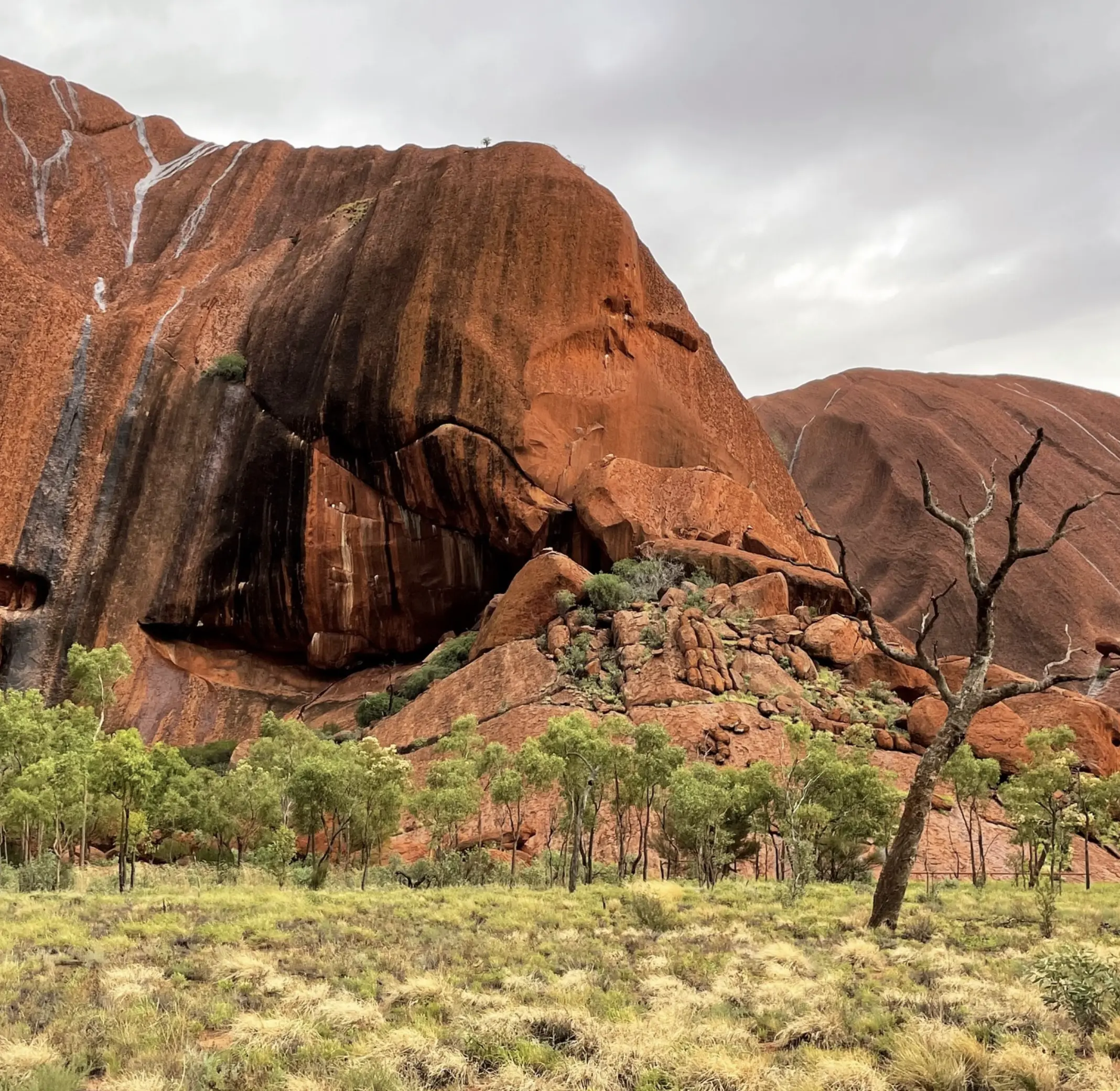Ayers Rock, also known as Uluru, is a UNESCO World Heritage Site in the beautiful Uluru-Kata Tjuta National Park in the Northern Territory of Australia. This icon is not just a natural wonder but a cultural treasure trove that offers a deep connection to the Aṉangu people, the traditional owners of the land. With its amazing rock formations and landscapes Uluru is surrounded by opportunities to get into aboriginal culture and history. Here are the top 10 cultural experiences to do when you visit Uluru.
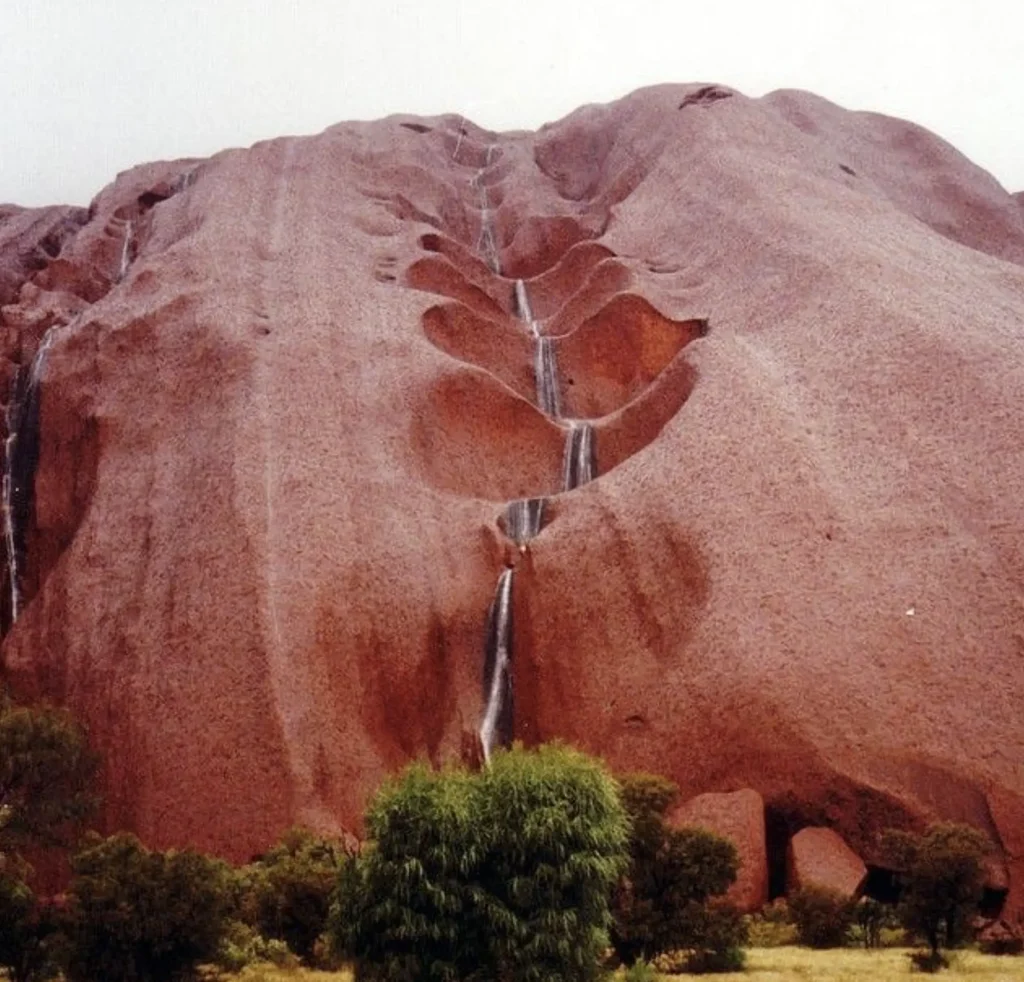
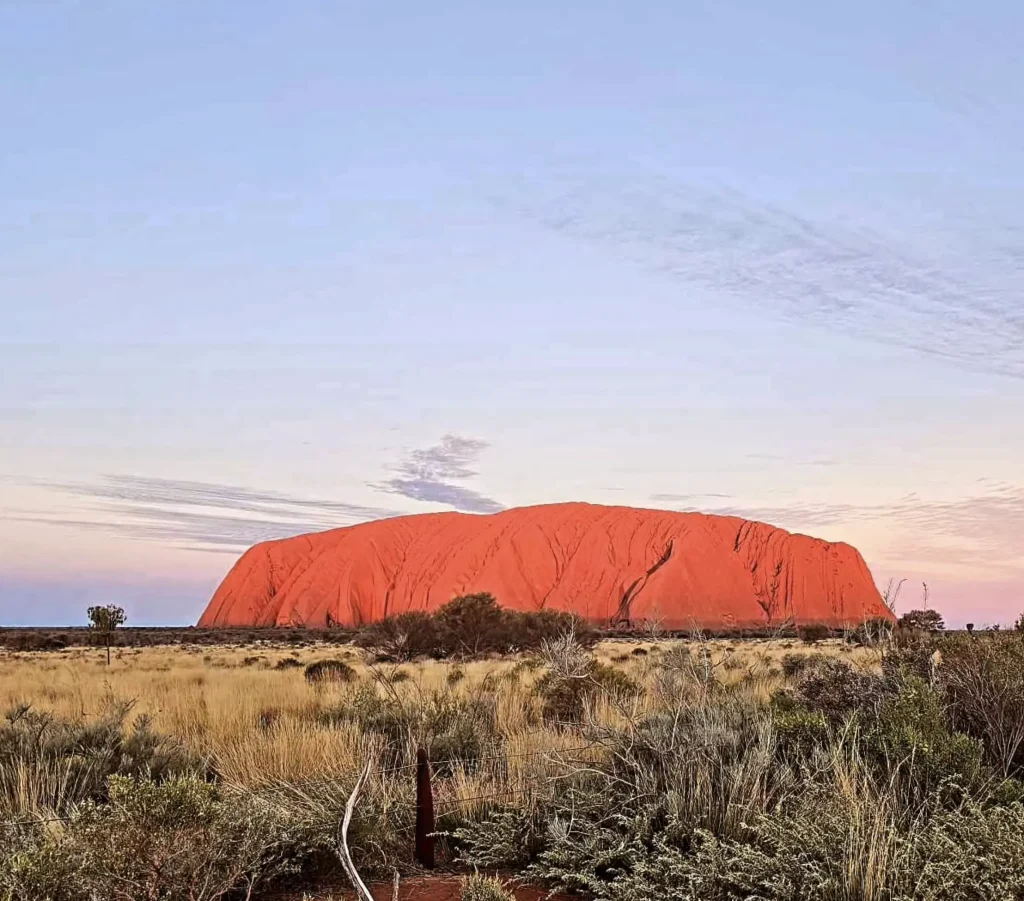
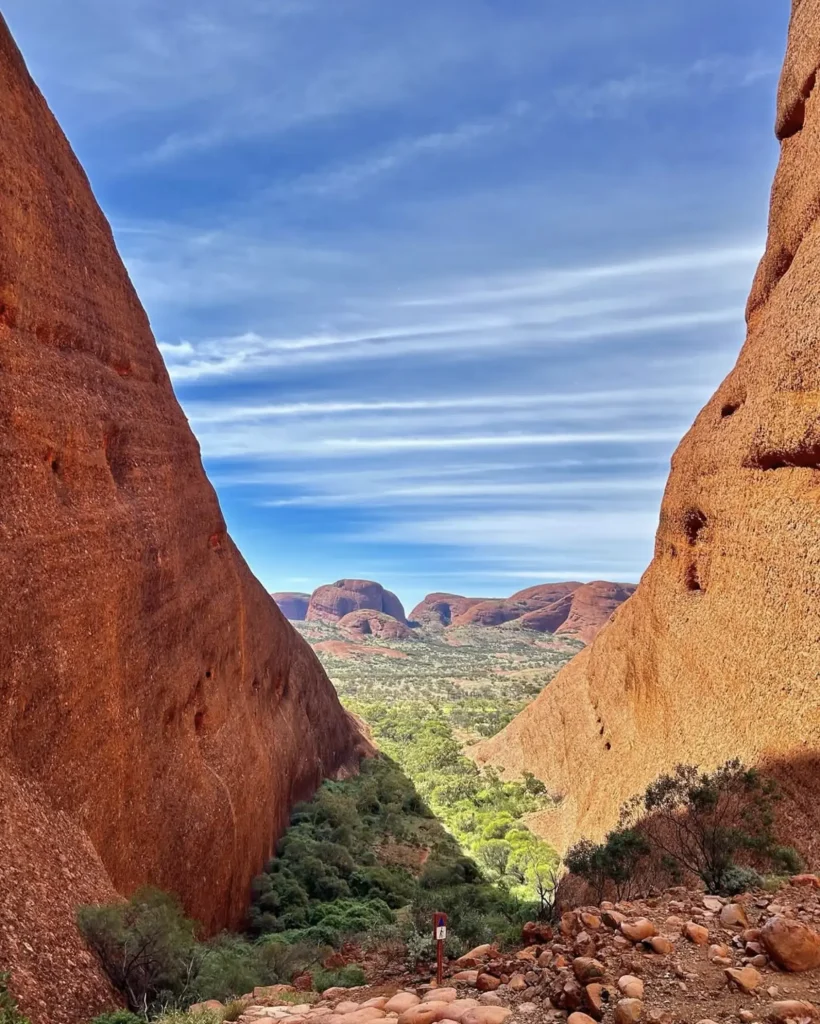
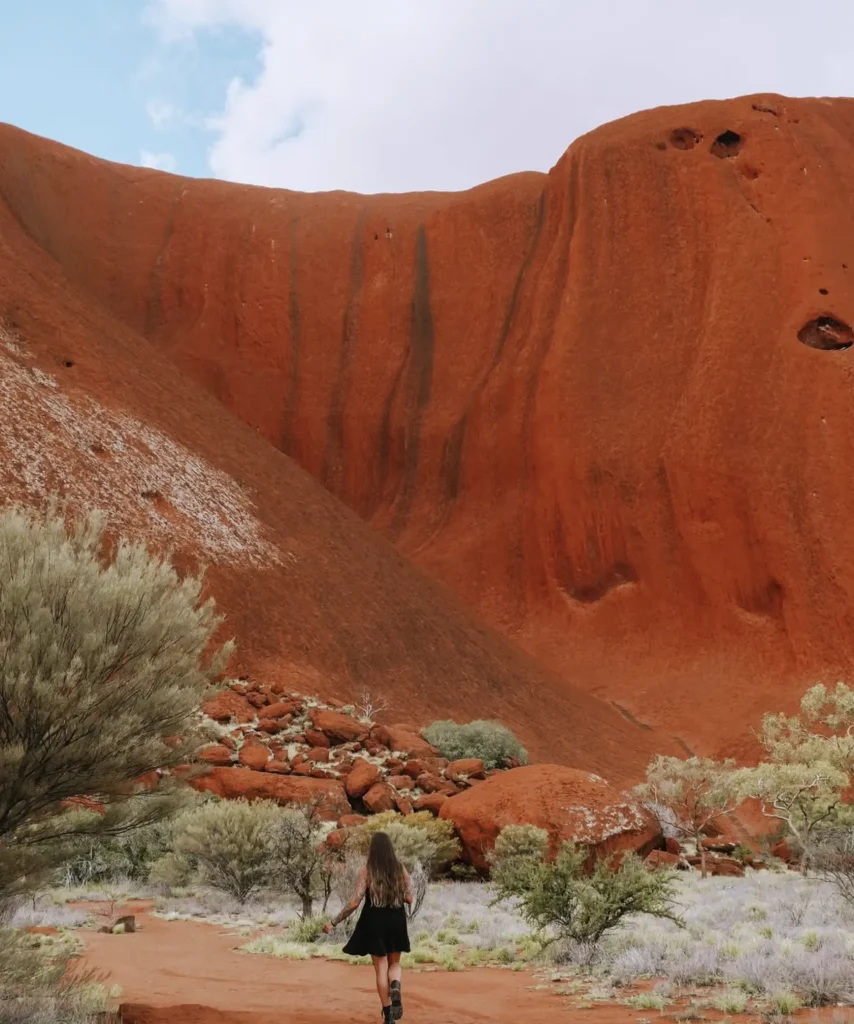
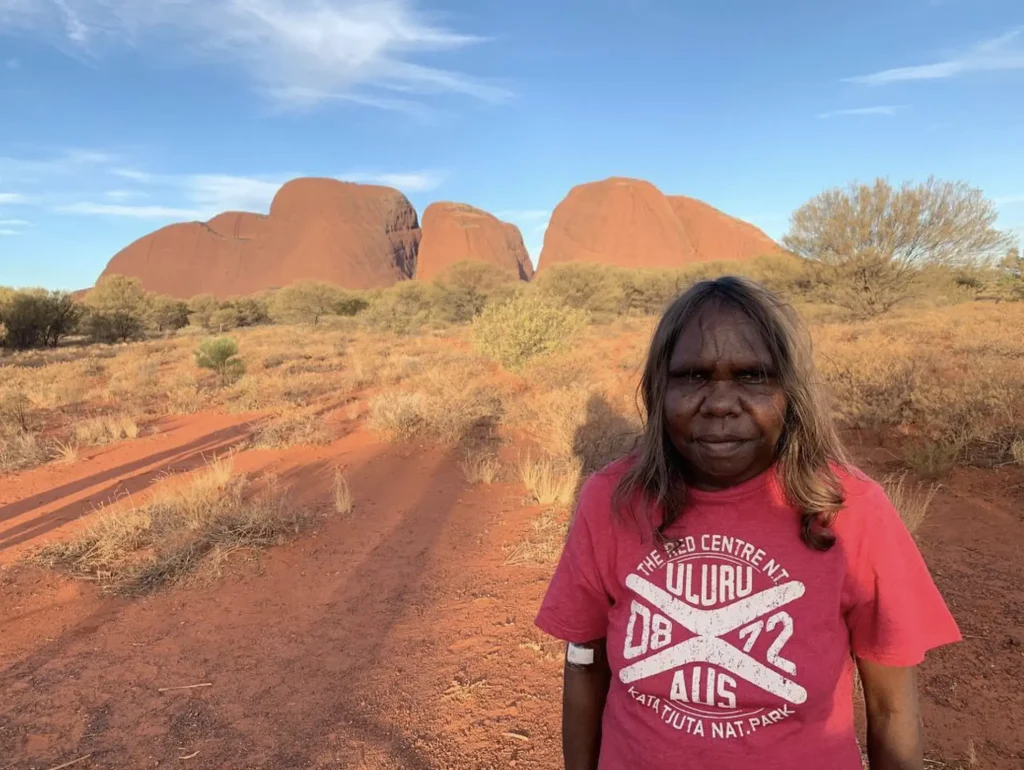
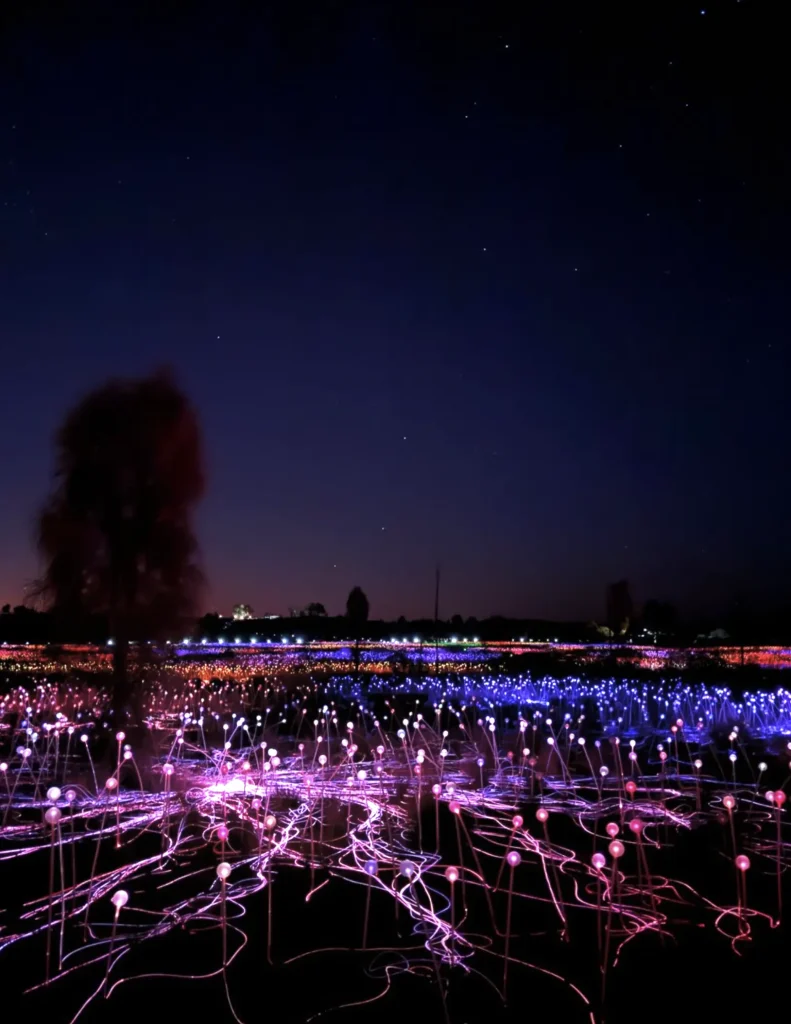
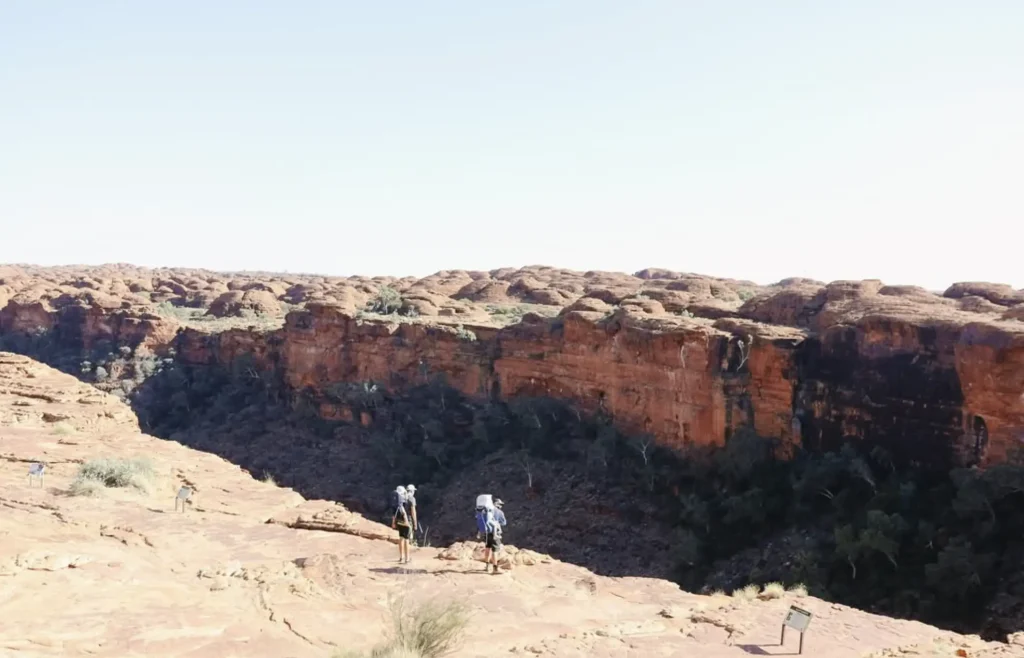
Guided Walks with Indigenous Guides
Walking the ancient landscape with Indigenous guides gives you a different perspective on Uluru. Anangu local guides share their knowledge of the land, the spiritual significance of the sites and the stories that have been passed down through generations. The Mala Walk and Kuniya Walk are the two most popular walks that show you not only the natural beauty but also the cultural stories of the area.
Why
These walks are intimate and allow you to get up close and personal with the living culture of the Aboriginal people. Learning from an indigenous guide will give you a deeper understanding of the cultural heritage of the land and make your visit more meaningful.
Field of Light Art Installation
The Field of Light art installation by British artist Bruce Munro has over 50,000 lights spread across the desert floor. This is a breathtaking sight that turns the rugged landscape into a colourful tapestry of beautiful lights against the night sky.
Special
Watch the lights change as the sun sets. This is art and nature combined, modern and ancient.
Uluru-Kata Tjuta Cultural Centre
Start your journey at the Uluru-Kata Tjuta Cultural Centre. This educational hub will give you an introduction to the cultural significance of the park, the ancient rock art and the aboriginal culture of the area. The centre has exhibits about the Aṉangu people, their traditions and the living culture that is still here today.
Do
Participate in cultural presentations, view rock art sites and explore the museum’s exhibits that tell the stories of the indigenous Australians who have lived here for thousands of years.
Bush Tucker Tours
Join a bush tucker tour and learn about the traditional foods and plants of the desert. Learn about aboriginal culture as your guide explains how the Aṉangu people used to source and prepare food from the land. Taste unique ingredients like lemon myrtle cream and get a direct connection to the land.
Meaningful to Culture
These tours are about sustainability and the significance of native plants and animals in aboriginal culture.
Dot Painting Workshops
Join a dot painting workshop and get creative while learning about the importance of this art form in Indigenous culture. Led by local indigenous artists, you will learn about the meanings behind the symbols and stories in the artwork.
Personal Connection
Make your own artwork during the workshop and connect with aboriginal stories and take home a souvenir of your visit. You will leave with a greater understanding of Aṉangu culture.
Traditional Dance Performances
Watch traditional dance performances and experience the richness of Aṉangu culture. These performances tell stories of creation and ancestral beings, often with traditional music. The dances are a window into the spiritual beliefs and practices of Aboriginal culture.
Cultural Connection
These performances will entertain and educate you about the importance of dance as a storytelling medium in Indigenous culture. Chat with the performers afterwards for some great insights into their traditions.
Sunset and Sunrise Viewing
See the Uluru sunset or sunrise and be amazed by the stunning surroundings of this natural wonder. Guided Alice Springs to Uluru tour often combine these views with cultural stories and deepen your understanding of the rock to the Aṉangu people.
Photography
The colour changes of Uluru at these times are perfect for photography and a favourite among visitors. It’s a moment of peace and connection to the old land.
Kata Tjuta Exploration
Kata Tjuta (The Olgas) is a group of big rocks that are very important to the Anangu. The Walpa Gorge walk offers views and stories about the cultural significance of this sacred site and the role it plays in the life and traditions of the indigenous people.
Get Adventurous
This area is great for walking and has outdoor activities so add it to your itinerary. The Kings Canyon Rim Walk nearby is another amazing walk to see the ruggedness of the area.
Mutitjulu Waterhole Visit
The Mutitjulu Waterhole is part of the landscape and culture. A guided tour to this peaceful place will explain its importance as a water source and its role in local stories. It’s also a great spot for birdwatching and wildlife.
Ecological Context
Learning about the importance of water in the desert adds another dimension to your visit and shows the connections of life in this dry land.
Stargazing
See the amazing night sky of the Australian desert through guided stargazing. No light pollution here, Uluru is the perfect place to see the stars and learn about the constellations.
Cosmic Stories
Guides will tell you stories of how the stars have been used for navigation and storytelling by the Aṉangu people and how that connects the land to the sky.
FAQ
What is the cultural significance of Uluru?
Uluru is sacred to the Anangu people and is part of their spirituality and culture. It’s a living cultural landscape with ancient stories and rock art sites, and that connects the land to the traditional owners.
Can I climb Uluru?
Yes, climbing Uluru is not allowed to respect aboriginal culture and the Anangu’s spiritual beliefs. Instead, explore the base and do the guided walks, giving you great cultural insights.
What to wear?
Wear comfortable, breathable clothing and sturdy shoes for outdoor activities. Bring a hat and sunscreen for the desert sun and insect repellent for bush walks.
How do I get there?
Uluru is a 20 minute drive from Ayers Rock Airport which is serviced by flights. There are many tours and car hire options available to explore the area including Kings Canyon and the MacDonnell Ranges.
Can I take photos?
Yes, photography is allowed in most areas of the park. Just be respectful and don’t take photos in the sacred sites as indicated by the signs. Take photos of the sunset or the Field of Light.
